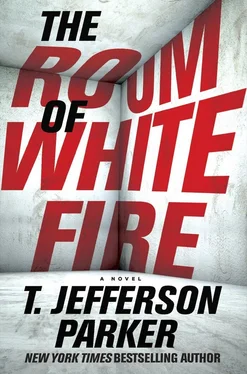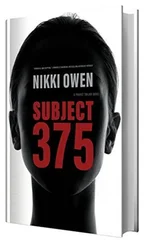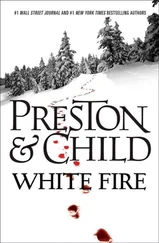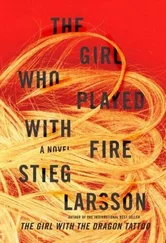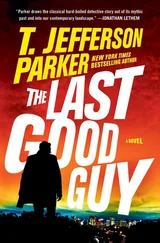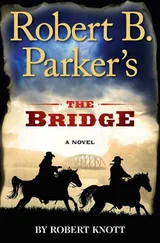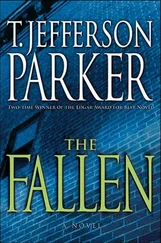“He told me just about the opposite.”
“I expected that.”
“Why?”
Still squinting up at me, she raised a hand to shade her eyes. A small tear had formed in the corner of one.
“I beg your pardon, Dr. Hulet,” I said, taking her shoulders gently. I turned us away from the frontal sun and released her. She stood still, then took my shoulders and reversed us back into the piercing light, raising a hand to shade her eyes again.
“Because it would be in Clay’s best interest,” she said. “To call me first, when you locate him, and not Alec and not Dr. Spencer.”
“Just take your word for it?”
“I’m asking you to, yes.”
“I’ll think about it,” I said. I’d dealt with multiple masters before and no good had ever come of it.
“What we just did made me realize something,” she said. “Moving in and out of the sun like that? I haven’t danced in five years.”
“I’m a good dancer. Let me take you sometime.” The words came out as I thought them. I regretted them instantly. Professionally perilous, just for starters. The whiff of need. Not very Roland Ford.
She studied me for a long beat. “I’ll think about that, too.” Then she turned and strode back toward the lobby, heels brisk on the asphalt and a glint of spring sunlight off her neatly packaged hair.
I watched her. Pretended to wonder what had gotten into me. I looked for clues in the truck window reflection. Same old face. Some dings and a faint forehead scar from the ring. There’s a story behind that scar, a story about Roland “Rolling Thunder” Ford. For what little it’s worth, I am a good dancer. I took it up after boxing. For a big man, it turns out, I have good balance, and when I dance I feel light and graceful. Temporarily. But then, everything is temporary. The trick is letting temporary be enough.
I knew damn well what had gotten into me. Just surprised by the intensity of it. I hadn’t asked a woman to dance in two years. Gave myself fifty-fifty odds on the invite.
I stashed the papers with the gun, put the phone in my pocket, and locked up the heavy toolbox again.
Under the gaze of two orderlies, I strolled past the Iceland poppies and followed the path across the big lawn. Then into the trees. The spring afternoon had gone cool in the shadows and soon I felt free of the men and women in white.
Ten minutes later I came to the perimeter fence and the freshly filled escape hole. From under a big oak tree I looked at the fence and the hole and the rough dirt road on which Clay Hickman and at least one confederate had driven away. I lit a cigarette and gave it a good deep draw.
A beaten black economy car popped along the road, picking through the ruts. Bad muffler. The girl driving waved out the window and kept on going. I took a knee under the oak, considered calling in my own bloodhound man, whose dogs I had seen work near-miracles. I wished Clay had a cell phone so I could get an old sheriff’s deputy friend to ping it for me, but no such luck. I watched a pair of mountain quail hustle along the road, topknots upright and feet just little blurs. Soon they’d have chicks, then late in summer they’d covey up with other families. Safety in numbers. Sometimes that worked. I stood and ground out the butt nice and deep, swept some dirt over it like a cat.
The noisy black car came back in the opposite direction, which made me think of the bloodhound going up and down that road, faithful to his best sense, as far as it could take him. The car stopped not thirty feet from me and the girl left the engine running, got out and came to the fence. I walked over.
She was skinny and orange-haired and didn’t look twenty. Denim shorts with frays and holes, a red plaid flannel shirt with the tails knotted at her navel and the sleeves rolled up, hiking boots. “Are you one of the crazies?” she asked.
“I just look that way.”
“You can’t tell by looking. Security?”
“No.”
“But you’re camped out by that hole wondering where so-called Jason got to.”
“So-called Jason. Exactly.”
“Why?”
“I want to help him. But I have to find him first.”
“You don’t look like a doctor.”
I shrugged. A shrug to a human is a shiny object to a crow.
“Jason is a sweet guy. He said he’d be my friend if I brought him a shovel so he could dig out. I wasn’t looking for a friend. But I sensed something good in him. So I brought two shovels and helped. That was Monday.” She held up her small white hands, each palm with a big blister, one of the bandages hanging half off. “When we got back to my place I went to use the bathroom and he took sixty bucks out of my purse and went off in my truck and I haven’t seen him since. This here’s my sister’s car, which I’m borrowing.”
“So you’d talked to him before Monday.”
“Twice. First time we met was right here at this fence. I’d stopped to look at a snake on the road and he was running. For exercise, I mean. I asked him where he was going and he said, ‘Crazy, wanna come?’ I said maybe, and came back the next day, same time and place. ”
“After you dug him out, did he say where he was headed?”
She squinted at me, then tried to push the bandage flap back onto her skin. “No. He did call a couple of hours later, though — from a pay phone. Didn’t think they had ’em anymore.”
“You’re just the young lady I’ve been looking for.”
“That’s what he said, too.”
“I’m a private investigator.”
“I sell plush toys at the Wild Animal Park. In the Primate Palace.”
“Can we talk?”
Her name was Sequoia Blain and her home was a leaf-littered Airstream trailer in a park about a mile down the mountain. The trailer park was called Lazy Daze.
“Small but cheap, and they pay the propane,” she said, climbing the steps of a wooden deck. “I’m from eastern Oregon. I hate cities and can barely tolerate a town. Let’s sit outside.”
She tried to brush off the seat of a resin patio chair for me to sit in but flinched and waved her hand in the air as if to cool it. “Nothing worse than a blister you keep hittin’. Except for maybe a drunk boyfriend that keeps hitting you . Which I’ve had the last of.”
I swiped off the seat with the photo envelope and Sequoia went inside, screen door slamming. There were eight other trailers scattered in the oaks, all facing west, downslope, which gave way to chaparral and eventually the ocean, and probably some killer sunsets.
The screen door slammed again and Sequoia handed me a can of root beer. She set her phone on a small pine-needle-littered table and popped open her can. “I first saw him about a month ago. This lousy road is actually a shortcut to the highway from where I live. He was running along the nuthouse fence with one of the white nurse guys behind him. But he was a good-looking guy and he ran really fast and muscular. The nurse was huffing away. I didn’t know he was Jason then, of course. ‘Jason Bourne is my full name,’ he told me later, ‘exact same as the movie hero,’ and I just said, ‘Oh, crap — how dumb do you think I am?’ But he was all ‘No, no, no — that’s my real name, swear to Christ in heaven it is.’”
“Well, it’s not,” I said.
“Duh.”
“Try Clay Hickman.”
She nodded and took a sip of root beer. “Well, that’s a cool name, too. He didn’t seem that crazy.”
I handed her the envelope and she looked at the pictures. “These make him look kind of stoned. In real life he’s happier, but pretty random, too.”
“Random how?”
“His mind won’t stop for long. The spider monkeys at my work have more focus than him. Really. But he’s upbeat. Maybe he’s always that way. I mean, I only spent a few hours with him.”
Читать дальше
